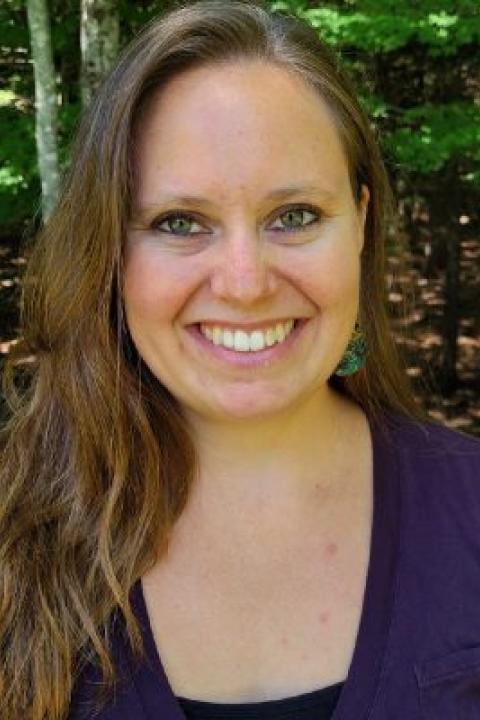The Master of Science (MS) in Counseling is designed to prepare students to enter the Counseling profession via one of three primary concentrations: Clinical Mental Health Counseling, School Counseling, and a Combined program.
All students complete the same core coursework, and then additional specialization courses dependent on the chosen concentration. All coursework emphasizes personal and interpersonal growth in addition to academic excellence, and students are taught the necessary knowledge and skills to be professional, ethical, and effective helpers within their chosen setting. Program requirements, policies, and resources are all available in the Student Handbook which is reviewed during initial coursework, is available on the program’s Sharepoint site, and can be requested from program coordinators. Additional secondary concentrations are also available in Addictions Treatment, Eating Disorders, Marriage and Family Therapy, Play Therapy, and Wellness Leadership.
Program-at-a-glance
Coordinator: Dr. Gary Goodnough, Dr. Rachele Hartley
Program Type: PT or FT, in-person
Time to Complete: 3+ years
Estimated Cost: $643/cr In-State | $874/cr Out-State
Credits: 63
Application Deadline: Rolling Admission via PSU Application
Accreditation: CACREP
GPA Requirement: 3.0 or better
Career Outcomes:
- Licensure as Clinical Mental Health Counselor working in public or private clinics, healthcare settings, residential or school settings.
- Certification as a K-12 School Counselor working in K-12 public and private schools in New Hampshire.
Curriculum & Requirements
Required Core Courses in this Major
Core Counseling Component
| Course | Title | Credits |
|---|---|---|
| Core Counseling Component | ||
| CO 5010 | Professional Orientation and Ethics | 3 |
| CO 5020 | Counseling Skills | 3 |
| CO 5040 | Diversity and Advocacy in Helping Relationships | 3 |
| CO 5050 | Advanced Human Development | 3 |
| CO 5070 | Research Design in the Helping Professions | 3 |
| CO 5130 | Psychopharmacology and the Biological Basis of Mental Health | 3 |
| CO 5230 | Career Counseling and Development | 3 |
| CO 5260 | Counseling Theories and Personality | 3 |
| CO 5430 | Assessment for Counselors | 3 |
| CO 5460 | Group Counseling | 3 |
| CO 5720 | Addictions & Related Disorders | 3 |
| CO 5770 | Psychopathology: Disorders of Childhood, Adolescence and Adulthood | 3 |
| CO 5100 | Practicum | 3 |
| Elective Course | 3 | |
| Total Credits | 42 | |
Required Concentration in this Major (Students choose one)
Clinical Mental Health Counseling
| Course | Title | Credits |
|---|---|---|
| Clinical Mental Health Counseling Component | ||
| CO 5600 | Foundations of Clinical Mental Health Counseling | 3 |
| CO 5670 | Working with Children and Families | 3 |
| CO 5710 | Crisis and Trauma Counseling | 3 |
| CO 5790 | Assessment, Diagnosis, and Treatment Planning | 3 |
| CO 5880 | Seminar and Internship in Mental Health Counseling | 6-9 |
| Total Credits | 18-21 | |
School Counseling
| Course | Title | Credits |
|---|---|---|
| School Counseling Component | ||
| CO 5030 | Foundations of School Counseling | 3 |
| CO 5080 | School Counseling Practice | 3 |
| CO 5650 | Critical Issues in Schools | 3 |
| CO 5780 | Working with Youth and Systems | 3 |
| CO 5850 | Seminar and Internship in School Counseling | 6 |
| Total Credits | 18 | |
Combined Clinical Mental Health and School Counseling
| Course | Title | Credits |
|---|---|---|
| Clinical Mental Health Counseling Component | ||
| CO 5600 | Foundations of Clinical Mental Health Counseling | 3 |
| CO 5670 | Working with Children and Families | 3 |
| CO 5710 | Crisis and Trauma Counseling | 3 |
| CO 5790 | Assessment, Diagnosis, and Treatment Planning | 3 |
| CO 5880 | Seminar and Internship in Mental Health Counseling | 6-9 |
| School Counseling Component | ||
| CO 5030 | Foundations of School Counseling | 3 |
| CO 5080 | School Counseling Practice | 3 |
| CO 5650 | Critical Issues in Schools | 3 |
| CO 5780 | Working with Youth and Systems | 3 |
| CO 5850 | Seminar and Internship in School Counseling | 6 |
| Total Credits | 36-39 | |
Optional Additional Concentrations in this Major
Addictions Treatment
| Course | Title | Credits |
|---|---|---|
| Addictions Treatment Component | ||
| CO 5730 | Addictions Treatment Modalities | 3 |
| Total Credits | 3 | |
Marriage and Family Therapy
| Course | Title | Credits |
|---|---|---|
| Marriage and Family Therapy Component | ||
| MFT 5010 | Foundational Methods in Marriage and Family Therapy | 3 |
| MFT 5020 | Current Issues in Marriage and Family Therapy | 3 |
| MFT 5030 | Foundations and Ethics in Marriage and Family Therapy | 3 |
| MFT 5900 | Seminar and Internship in Marriage and Family Therapy | 3-9 |
| Total Credits | 12-18 | |
Eating Disorders
| Course | Title | Credits |
|---|---|---|
| Eating Disorders Component | ||
| CO 5160 | Eating Disorders: Awareness and Prevention | 3 |
| CO 5185 | Medical Aspects and Nutrition Counseling of Eating Disorders | 3 |
| CO 5170 | Treatment Modalities for Eating Disorders | 3 |
| Total Credits | 9 | |
Play Therapy
| Course | Title | Credits |
|---|---|---|
| Play Therapy Component | ||
| CO 5210 | Dynamic Play Therapies | 1 |
| CO 5220 | Child Centered Play Therapy | 1 |
| CO 5240 | Expressive Play Therapies | 1 |
| CO 5250 | Special Populations in Play Therapy | 1 |
| Add Four Elective Play Therapy Courses | 4 | |
CO 5200 | Adlerian Play Therapy | |
CO 5270 | Special Topics: Play Therapy | |
CO 5280 | Group Play Therapy | |
CO 5290 | Nature Based Play Therapy | |
CO 5370 | Play Therapy in School | |
CO 5380 | Family Play Therapy | |
CO 5390 | Play Therapy with Traumatized Children | |
| Total Credits | 8 | |
Wellness Leadership
| Course | Title | Credits |
|---|---|---|
| Wellness Leadership Component | ||
| OH 5180 | Exploring Personal & Organizational Health | 3 |
| OH 5200 | Communication in Socially Responsible Organizations | 3 |
| OH 5100 | Full Spectrum Leadership | 3 |
| Total Credits | 9 | |
Counselor Education Core Learning Objectives - Students will be able to:
- Articulate and demonstrate the professional and ethical role of a counselor.
- Discuss and demonstrate techniques of cross-cultural counseling and advocate on behalf of multicultural populations.
- Describe the role that human growth and development plays in counseling interventions and modify these interventions as appropriate.
- Explain theories of career development and implement career interventions.
- Define and utilize counseling skills and advanced counseling interventions.
- Articulate theories of group counseling and utilize leadership skills in facilitating various types of groups.
- Identify and utilize various types of counseling assessments.
- Describe and conduct methods of research and program evaluation.
Clinical Mental Health Counseling Concentration Learning Objectives - Students will be able to:
- Articulate and apply foundational knowledge of clinical mental health counseling.
- Articulate and demonstrate various types of counseling, consultation, prevention, and intervention – including response to crisis and trauma and addiction.
- Discuss issues of multiculturalism, demonstrate multicultural competency skills, and advocate on behalf of multicultural populations in clinical mental health counseling settings.
- Analyze and utilize various types of clinical mental health counseling assessments.
- Critically evaluate and utilize research methods in the practice of clinical mental health counseling.
- Describe and employ principles of case conceptualization, diagnosis, and treatment planning with a variety of populations.
School Counseling Concentration Learning Objectives - Students will be able to:
- Articulate and apply foundational knowledge of school counseling.
- Articulate and demonstrate various types of counseling, prevention, and intervention – including methods of program development and crisis response.
- Discuss issues of multiculturalism, demonstrate multicultural competency skills, and advocate on behalf of multicultural populations in school counseling settings.
- Analyze and utilize various types of school counseling assessments.
- Critically evaluate and utilize research methods in the practice of school counseling.
- Describe methods of promoting social, emotional, and academic development.
- Demonstrate methods of effective collaboration and consultation with school staff, students, parents, and community members.
- Explain the importance of and assume leadership roles in their respective schools.
The Combined Clinical Mental Health and School Counseling concentration includes all of the above learning objectives.
The concentration in Clinical Mental Health Counseling is designed to prepare students to function as licensed clinical mental health counselors. It provides the educational requirements outlined by the New Hampshire Board of Mental Health Practice as requisite to attaining mental health counseling licensures. PSU’s mental health counseling program is nationally accredited by the Council for the Accreditation of Counseling and Related Educational Programs (CACREP). Students should note that there are significant post-degree requirements to undertake prior to being licensed, including a licensure exam and between two and four years of paid post-graduate clinical experience. Graduates work in both private and public clinical, healthcare, prison, residential, and school settings.
The concentration in School Counseling is designed to prepare students to be a K-12 professional school counselor. PSU’s school counseling program is nationally accredited by the Council for the Accreditation of Counseling and Related Educational Programs (CACREP). It is the only school counseling program in New Hampshire to hold this prestigious distinction. While in their program, students complete the educational requirement for the application process for New Hampshire licensure in school counseling, which also includes completion of a licensure exam. Graduates work throughout the K-12 public and private school system in New Hampshire and surrounding states.
The Combined Clinical Mental Health and School Counseling concentration prepares students for both career paths listed above.
Mental Health professionals in all settings continue to be an area of identified need in New Hampshire, and post-graduation employment rates are very high for all concentration areas.
Admission Information
Requirements
The Counseling programs require the following materials to be submitted through our online application:
- Recommended 3.0 or better GPA in undergraduate coursework
- Official transcripts from any/all college level work
- Three professional recommendations
- Participation in the Group Interview
- Current Resume
- Statement of interest
- NH Residency Verification form (NH residents only)
Deadlines
Students pursuing MS in Counseling can apply for admission to any of the upcoming semesters.
- Fall – August 1
- Spring – Extended to December 31
- Summer – April 15
*We suggest submitting your documentation at least two weeks prior to the posted date to ensure your application is complete and can be reviewed by the deadline.
2025-26 Estimated Graduate Per Credit Tuition and Mandatory Fees
| New Hampshire Resident | ||||
|---|---|---|---|---|
| Tuition | Mandatory Fees | Per Credit Total | ||
| Master’s Degrees/Certificates | $599 | $44 | $643 | |
| CAGS | $641 | $44 | $685 | |
| EDD | $698 | $44 | $742 | |
| Out-of-State Resident | ||||
|---|---|---|---|---|
| Tuition | Mandatory Fees | Per Credit Total | ||
| Master’s Degrees/Certificates | $830 | $44 | $874 | |
| CAGS | $802 | $44 | $846 | |
| EDD | $888 | $44 | $932 | |
More information is available through the Student Financial Services Office.
Graduate students are eligible for financial aid in the form of student loans only. You will need to complete the FAFSA at least 30 days prior to the start of the semester you wish to begin taking classes. International students are not eligible for federal financial aid – please review our international admission requirements to learn more.
More information can be found on the Student Financial Services website.
Each year, Plymouth State offers a limited number of merit-based scholarships to admitted graduate students. Selection criteria include academic and professional achievements, commitment to graduate study, and achievement or pursuit of personal or professional goals. Visit the PSU Scholarship Opportunities webpage for additional information.
Explore Program Details
-
ProfessorProgram Coordinator, Clinical Mental Health CounselingEmail: ggoodno@plymouth.eduPhone: (603) 535-2821
-
Assistant ProfessorProgram Coordinator, School CounselingEmail: Rachele.Hartley@plymouth.eduPhone: (603) 535-2273
-
ProfessorDirector, Counselor Education and School PsychologyEmail: mamariska@plymouth.eduPhone: (603) 535-3288
-
Associate ProfessorProgram Coordinator, School PsychologyEmail: cpstoddard@plymouth.eduPhone: (603) 535-2615
Explore Today.
Realize Tomorrow.










